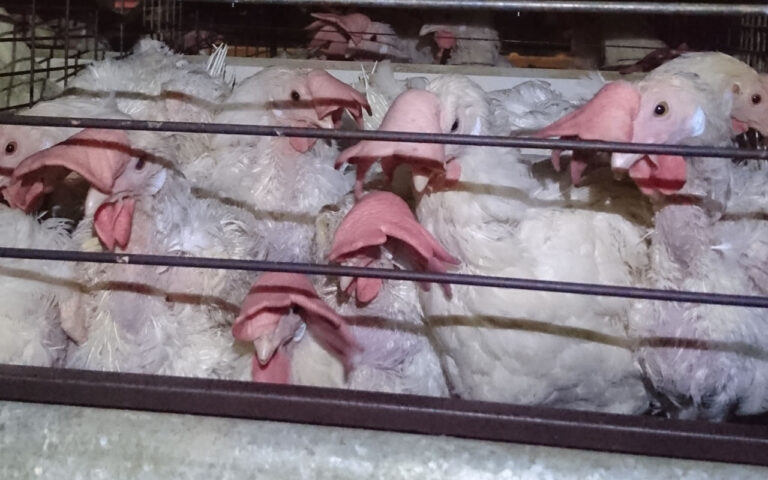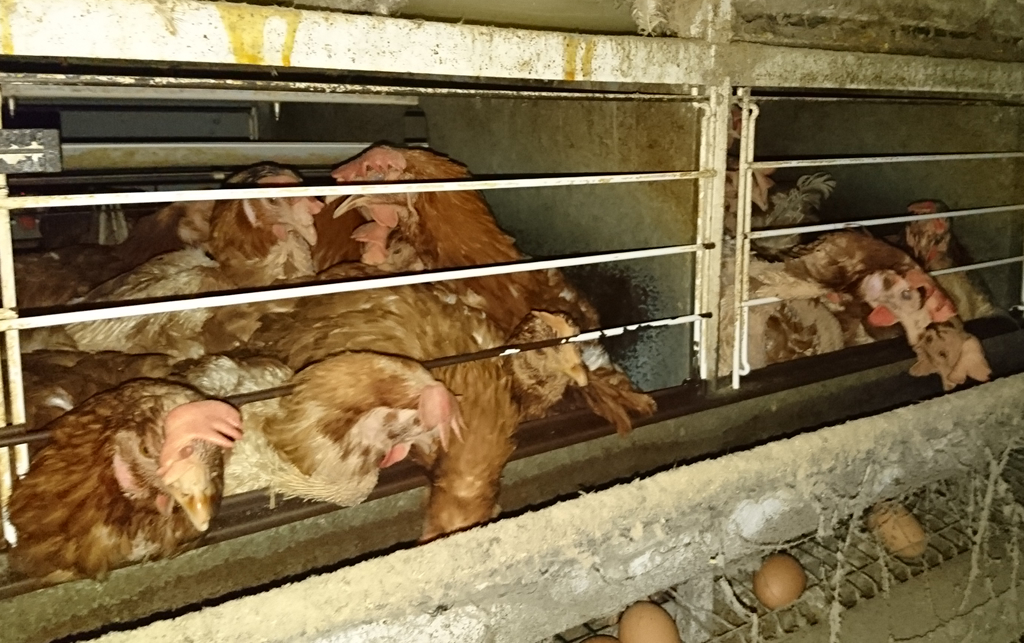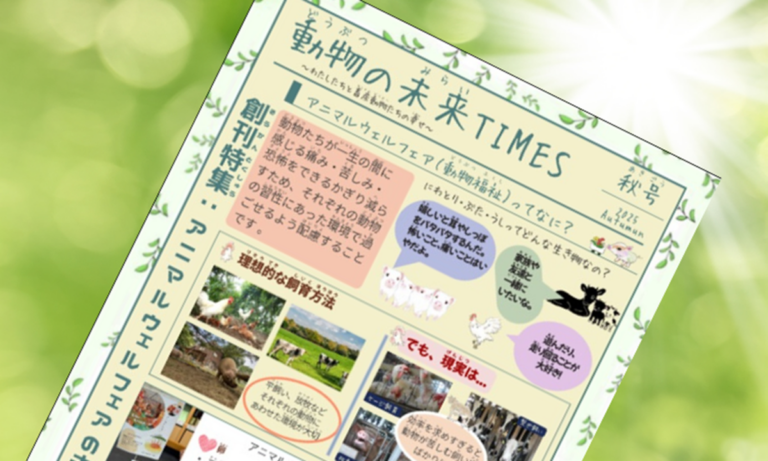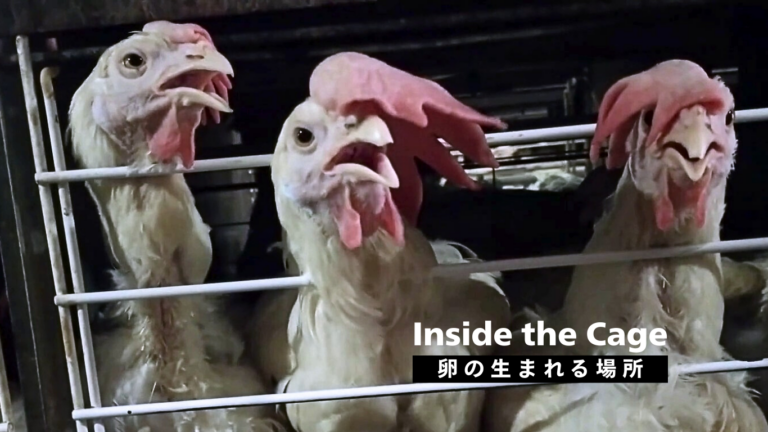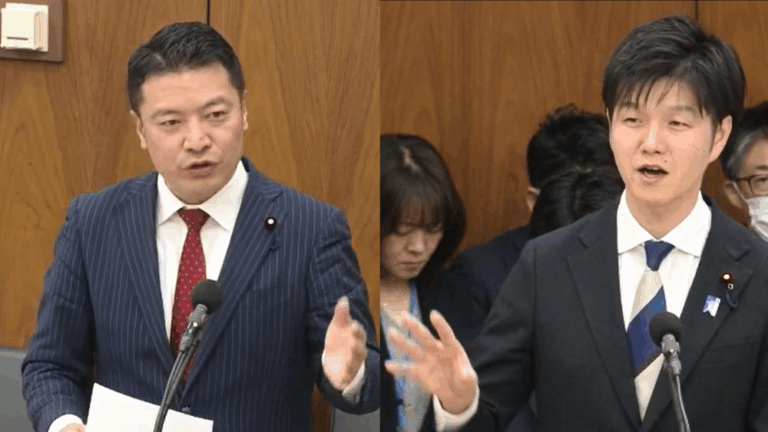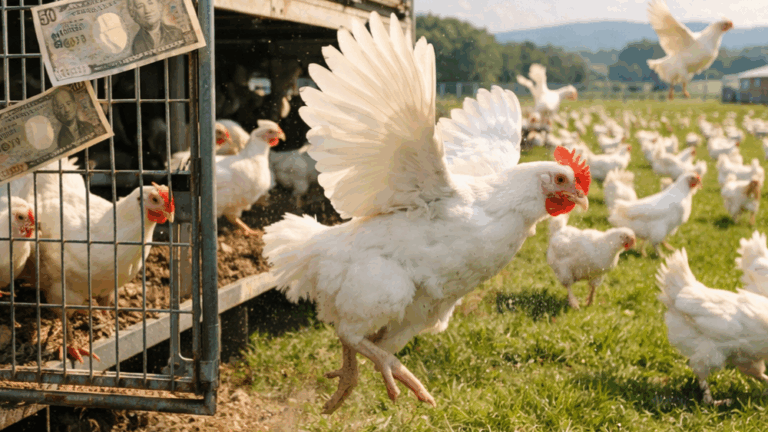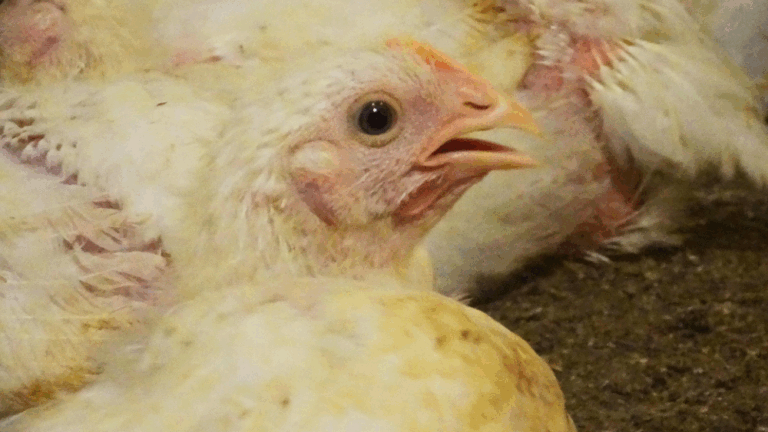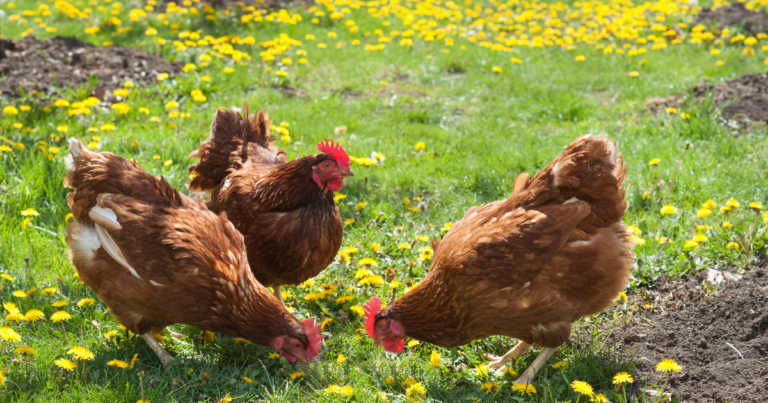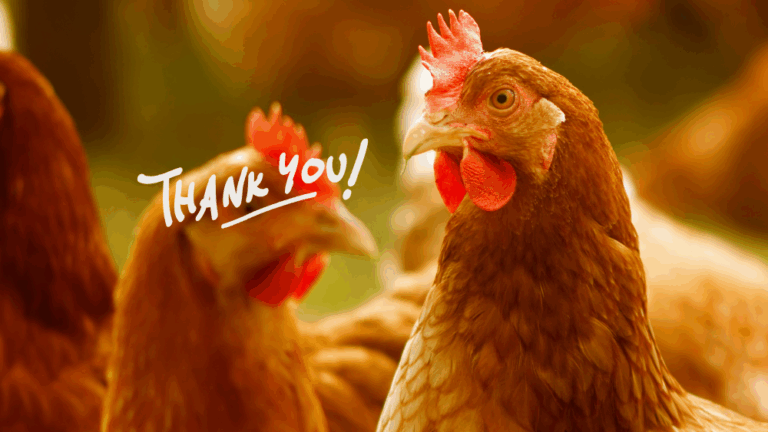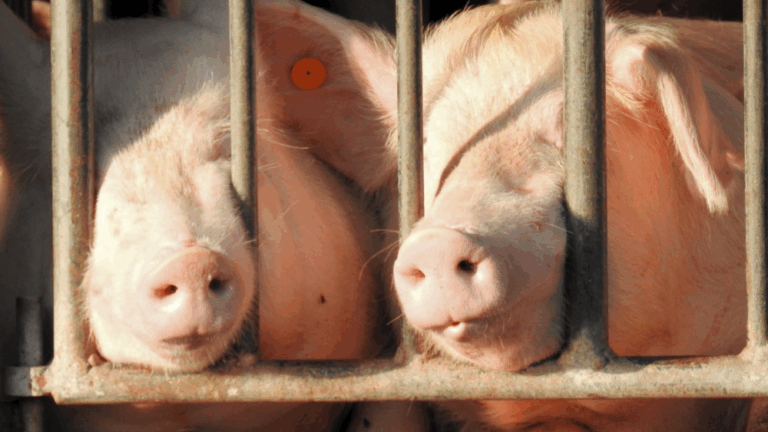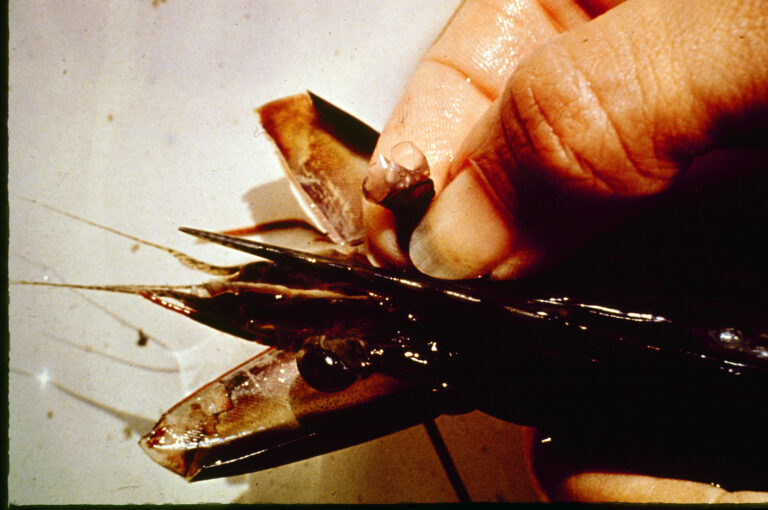On 2021/6/3, the Ministry of Agriculture, Forestry and Fisheries (MAFF) issued the following report related to the bribery case of the former chair of Akita Foods.
The media reported that the conclusion was “chicken egg bribery ‘no policy distortion’ “, but the report shows how much MAFF’s policy was distorted from the start. Questions were also asked by the Agriculture, Forestry and Fisheries Committee, all of which pointed out that the answers were ambiguous and the investigation was inadequate; nevertheless, it repeated that “the policy was not distorted”. Of course, it was distorted from the beginning, not distorted by the former Minister Yoshikawa… This is more serious and there is no way to improve it. The report shows that the “intimate relationship” with stakeholders remains unchanged.
Citizens can only say “how dirty…”.
The following are points from the report regarding the case in which the former chair of Akita Foods ignored chicken suffering and schemed to lower OIE’s animal welfare standards.
- Before former Minister Yoshikawa took office, MAFF officials alone had decided to oppose the OIE proposal.
- MAFF itself asks the National Agriculture and Food Research Organization and producers to collect data that can supplement MAFF’s opposition opinions.
- There is evidence that the former Minister Yoshikawa was trying to maintain fairness for the first 1-2 months.
- MAFF staff and former chair of Akita Foods repeat meetings once every 1-2 months for 2-3 hours.
- The OIE Liaison Council does not function, and the setup is such that no matter what opinions are presented, only comments in line with MAFF’s claims get submitted.
- It can be seen that it was MAFF that brought in Akita Foods and other poultry affiliates to the OIE Liaison Council.
Let’s unravel the report about animal welfare
Former chair of Akita Foods is MAFF’s regular customer
Since the OIE discussions began, the former chair of Akita Foods is reported to have continued to detain the MAFF director once every 1-2 months for 2-3 hours. What are they doing during the job of running the country… “MAFF, please cut it off and move on”, is all we can say in disappointment. The MAFF staff seemed to have received service, but on the contrary, they also seemed to have given service. In short, they seem to have been buddies.
It was the MAFF staff that decided “let’s lower animal welfare!”
Without consulting the Minister or hearing the opinions of experts at the OIE Liaison Council, the bureaucrats had already decided on the policy from the start.
When the OIE presented the second draft, which required perches and nest boxes, it was confirmed that “the chief of the Fushimi Livestock Promotion Division and a representative had a meeting and decided that Japan should give an opposing opinion. To this end, the Livestock Promotion Division has begun collecting scientific knowledge such as papers necessary for submitting comments“.
This is the moment when the Livestock Promotion Division, which is in charge of animal welfare, had begun a plan to lower animal welfare.
By the way, at the time of this decision, the former Minister Yoshikawa has not yet become the minister.
Former Minister Yoshikawa gave warning?!
2018/11/21 was the day when Representative Horikoshi asked questions at the Agriculture, Forestry and Fisheries Committee about animal welfare.
To the bureaucrats who came to describe the contents of the inquiry, Former Minister Yoshikawa said:
“I want you to understand that the producers who come to me don’t understand animal welfare, we have to discuss animal welfare internally, and it’s different now than before I became the Minister.“
Well? Mr. Yoshikawa did actually study. Yes, and if he is a decent person, he’d find that world-class animal welfare is evidence-based and necessary not only for animals, but also for producers and people’s health.
After hearing Representative Horikoshi’s claims, it can be seen that he also spoke strictly to the producer.
At the House of Representatives Agriculture, Forestry and Fisheries Committee on that day, Representative Keinin Horikoshi asked about animal welfare and Minister Yoshikawa replied that he would promote animal welfare while gaining understanding from the producers.
“In addition, from Minister Yoshikawa, who at this questioning at the Diet had heard that there were cases in which chickens brought to poultry processing plants were abandoned for a long time, there was a statement to the Kumagaya Animal Health Division Manager, who had come to explain another case that evening, to the effect that if such a story is true, we should stop arguing or do what Japan can do instead of the stance of gaining the understanding of the producers.“
MAFF rushed forward without worrying about former Minister Yoshikawa’s concerns
Nine days before making the above remark, “Minister Yoshikawa said that he would submit comments to OIE in consultation with relevant organizations, and he’d like to deal with it in close cooperation with them because it is an important issue“, but the words of Minister Yoshikawa, who tried to change his mind after hearing Representative Horikoshi’s remarks, seem to have been drowned out by the acts of MAFF bureaucrats.
That’s of course, because the producers’ voices were convenient for MAFF’s claims! For MAFF, which wants to oppose the rise of animal welfare in the world, a fair opinion from Former Minister Yoshikawa was probably troublesome.
MAFF’s Livestock Promotion Division (in charge of AW) and the Animal Health Division (in charge of OIE) held discussions with “poultry-affiliates including Mr. Shogo Akita (the son of Akita’s former chair)”, and instructed as follows:
“To OIE, it is necessary to show scientific basis in submitting opinions, and it is difficult to deny what is being done in other countries, so we should prepare in the direction of affirming what is being done in Japan.“
Such an act is called a pre-determined conclusion, or cheating. In order to justify Japan’s outdated animal farming method (cage rearing), they searched for scientific basis for their arguments, even ask the National Agriculture and Food Research Organization for assistance.
Apparently MAFF was the one to bring in the son of former Akita Foods chair to the OIE Liaison Council
As it was, Shogo Akita (the son of former Akita Foods chair) and two poultry farmers became temporary members of the OIE Liaison Council. This is the part pointed out by the third-party committee that the process of these assignments was ambiguous. It is a process that can be easily understood that they were invited to “affirm what’s being done in Japan”.
Given that Former Minister Yoshikawa stated that these producers did not understand animal welfare, it is unlikely that he would have recommended them. It is natural to think that MAFF itself wanted the opinions of producers and poultry consultants to defend their claims in opposition.
After that, the OIE Liaison Council with a pre-determined conclusion was held, and the temporary members expressed their dissenting opinions as planned.
However, Mr. Shogo Akita (the son of former chair of Akita Foods), clearly not understanding animal welfare, was the person who left the mysterious remark like “Chickens do not perch due to selective breeding”, and other poultry affiliates also opposed the second draft having seen new large-scale cage-free poultry farms in Japan; their lack of experience and knowledge was undeniable. Still, they were sufficient for making them look like in a good position towards a pre-determined conclusion. Despite some opinions that animal welfare should be promoted further, Japan’s comments were only written in opposition to the second draft, as MAFF planned.
In the meantime, pressure from the former chair of Akita Foods continues
Former Special Advisor to the Cabinet, Nishikawa, also an adviser to Akita Foods, together with the former Akita Foods chair, visited Former Minister Yoshikawa again and pushed their claims aggressively, especially Mr. Nishikawa. It was the MAFF officials who were listening to these claims. By this time, the fairness of Former Minister Yoshikawa seems to have completely disappeared.
Before submitting comments to OIE, they were sent politely and specially to the Japan Poultry Association as well, but this point is not comprehensible, either.
Missing verification?
After submitting comments, Japan submitted another reminder comment to the OIE in June 2019, but the report does not mention this at all. It is an unprecedented response at an unnecessary timing, but this point missing indicates that the investigation is incomplete.
Recovery of trust is far away
The report with such a content concluded that the policy had not been distorted. The content increased distrust of MAFF, not of the former Minister Yoshikawa.
The MAFF executives, who made friends with Akita Foods here and took their opinions, or prepared the cheating, are now at higher positions and have strengthened their powers. The farms haven’t changed, either.
At the Agriculture and Fisheries Committee of the House of Representatives, Representative Seiichi Kushida questioned the MAFF Minister Nogami: what is necessary is not to keep opposing saying “Taking a long time in the future might be possible, but if this (the second draft that requires the installation of perches and nest boxes) becomes the international standard, it will be difficult to keep cages that account for over 90% in Japan“, but isn’t it necessary to respond to animal welfare while providing subsidies. However, even at this age, Minister Nogami said, “Battery cages provide freedom from pain and illness,” “Enriched cages and multi-tier aviaries do not offer freedom from fear and suffering or freedom from pain and illness“, showing biased understanding.
(*He seems to be ignoring the trend of abolishing caged rearing and that enriched cages are not recommended at all.)
Having said that, he says “I think it is extremely important for MAFF to further promote animal welfare. For farmed animals to be reared in more desired forms, while listening to expert opinions, we would like to continue to consider what kind of technical measures are possible”; however, considering that MAFF’s concept of animal welfare is not world-standard scientific animal welfare, it is scary…
It is known that battery cages have clearly higher mortality rates than other rearing methods and are unlikely to improve further, while barn-rearing have lower mortality rates than battery cages and improve as farmers gain more experience.
Barn rearing is certainly not perfect. It is also clear that free-range rearing is better. However, consumers around the world are becoming unable to ignore the overwhelming misery of cage rearing. As we moved toward a mature society, people’s perceptions changed toward images of animals trapped in cages, now considered cruel abuses beyond the scope of what humans should do.
It is impossible for Japan only to continue cruel rearing and receive understanding. The government isn’t making money, so they probably don’t care, but global corporations, publicly traded companies, restaurants, and hotels can’t ignore consumer needs.
And, having been talking with these companies, no company is reluctant to move on to world-class animal welfare. Everyone can accept that animal welfare is necessary, very important, and a good idea.
Why MAFF is not so, is that it sees things only from the standpoint of cage rearing producers. However, as Rep. Kushida said, and as the opposition member of the parliament who questioned that day said, it is necessary to promote animal welfare for the future of producers, and not continue rearing in which animals cannot behave naturally, cannot move, or even flap their wings, but to promptly adopt more advanced technology.

*Extras: the investigation is inadequate and extremely lenient
The purpose of this investigation is no longer relevant, but in any case it is inadequate and the conclusions do not reflect the process. The process is important, and those who read only the conclusions will miss the important things.
- Former Minister Nishikawa (at that time, Special Advisor to the Cabinet), former MAFF Minister Yoshikawa, and former chairof Akita Foods have not been interviewed or investigated at all → Incomplete!
- The scope of the investigation is limited to managers, from the director to the assistant section chief. Why not inquire the on-site staff who are actually writing texts? → Incomplete!
- Of the 51 MAFF staff members who were subject to the interview investigation, 45 were interviewed by the MAFF staff themselves, meaning interviews among buddies → poor form!
- In the first place, asking themselves “Did you do anything illegal?” won’t get anyone to answers “yes”. The investigation method → too lenient!
- Only emails printed out by the parties themselves are scrutinized → So disgustingly lenient!
Finally, this post extracts points related to the OIE animal welfare standards only. Very stimulating and interesting content is written, such as how intimate MAFF is to the industry and eating together on a daily basis, and how aggressive business people like Akita Foods can get subsidies thanks to introductions from the MAFF staff, so please read it.


